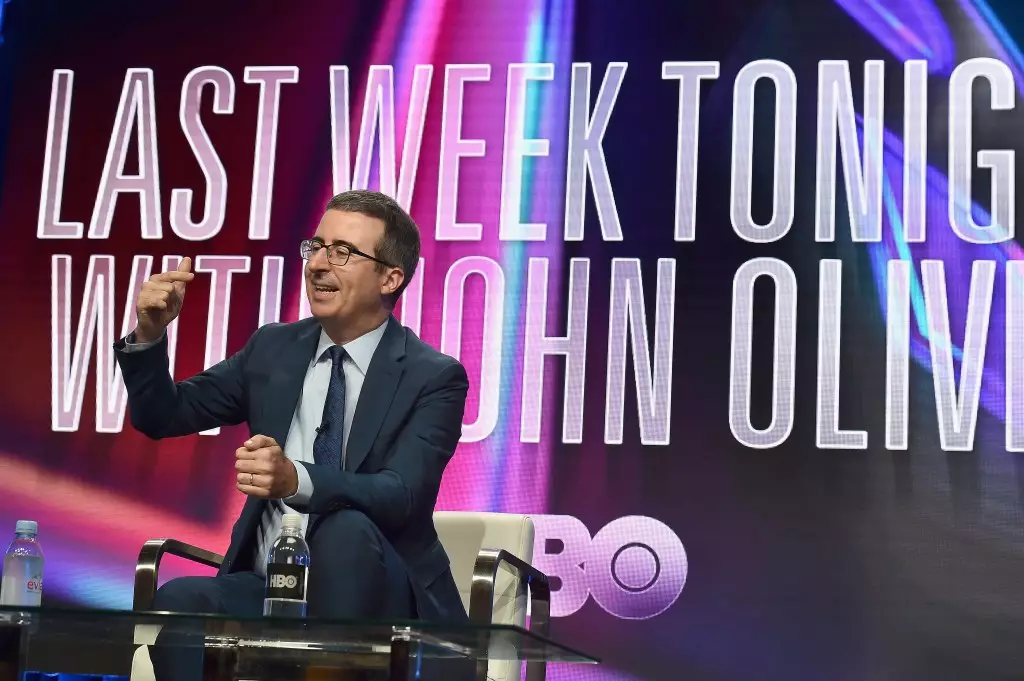In a sharp turn of events that has ignited discussions across legal circles and pop culture platforms, HBO’s acclaimed host John Oliver finds himself potentially embroiled in a defamation lawsuit that could reshape the boundaries of satire and expressiveness in television. The case hinges on accusations from Dr. Brian Morley, former medical director at AmeriHealth Caritas, claiming that statements made during an episode of *Last Week Tonight with John Oliver* (LWT) distorted his actual testimony regarding Medicaid practices. This has raised questions about the balance between comedic expression and responsible journalism, particularly in a digital age where information can be disseminated and misinterpreted almost instantaneously.
The Accusation: Dissecting the Complaint
Filed on March 28 in a New York federal court, Dr. Morley’s complaint presents a convoluted narrative of alleged misinformation. Central to his claim is the assertion that Oliver misrepresented his statements during a Medicaid hearing, particularly a commentary on the acceptable hygiene practices for severely disabled patients. Specifically, the article states that Oliver suggested Morley was okay with patients being unclean, using inflammatory language that disparaged Morley’s professional credibility. The stark language in the complaint claims that Olier’s outburst was not just a comedic moment but an intentional attack aimed at eliciting public outrage.
This case does not solely dwell on whether Oliver’s ill-fated remarks were indeed defamatory, but rather probes deeper, reflecting how comedy and criticism can overlap dangerously. Dr. Morley’s lawyers argue that Oliver’s rendition of Morley’s words was a calculated misrepresentation, crafted to boost ratings at the expense of Morley’s reputation. The heart of the case lies in whether Oliver’s show, while satirical, can hold any accountability for the interpretation of facts it presents.
Public Outrage vs. Public Responsibility
John Oliver’s comedic persona often critiques powerful institutions with wit and humor, captivating millions while holding those in authority to account. Yet, this situation exemplifies the potential pitfalls of such a high-stakes game where satire can blur the lines of reality. What is deemed entertainment may inadvertently veer into injustice when innocent parties are wrongfully accused.
Morley’s claims underscore a rising concern regarding the weight of public statements. An off-the-cuff quip meant to entertain may transform into a firestarter, igniting public ire that could irreparably affect a person’s professional life. The complaint emphasizes that the emotional toll and reputational damage sustained by Morley as a result of the episode’s portrayal may be profound. This potential for harm invites serious contemplation on what responsibilities, if any, entertainment programmers bear towards individuals featured in their stories.
The First Amendment and Its Limits
With any defamation lawsuit arises the specter of the First Amendment—the right to free speech, especially in the realm of public discourse. Oliver, a prominent figure known for his frank criticism of various social and political issues, may find that navigating the lines of comedic license and factual representation becomes crucial to his defense.
The legal team representing Dr. Morley is persistently emphasizing that Oliver wielded the power of media irresponsibly. They assert that by allegedly manipulating the context surrounding Morley’s remarks, Oliver went beyond protected parody and ventured into the realm of defamation. Here, the intricate balance between satire and fact becomes a pivotal battlefield as the case unfolds.
Expectations and Consequences for the Media Landscape
This legal dispute reverberates beyond individual reputations to touch broader implications for media practices in comedy and news reporting. Given the increasingly divisive political climate, the intersection of entertainment and news can become a pivot point for arguments about ethics and accuracy. The outcome of this lawsuit may set precedents concerning how media creators wield their influence, rewriting rules not just for Oliver but for all comedic outlets.
As this saga continues to develop, it challenges audiences to critically reflect on the truth behind their favorite shows. The responsibility of both creators and consumers of media grows ever more complex in an era when opinion can often masquerade as fact. The potential fallout from this case will likely resonate throughout the industry, reshaping how such commentary is executed and understood.
With stakes high and implications vast, the unfolding drama echoes far beyond the sterile confines of a courtroom—serving as a case study for the role of satire in society and the repercussions when humor collides with reality.

